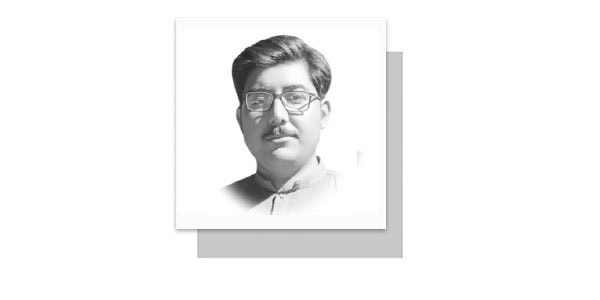PAKISTAN’S battered economy has delivered yet another blow to ordinary households, this time in the form of a staggering 50% increase in fixed gas charges, deepening the sense of despair among millions already struggling to make ends meet.
For families across the country, the monthly gas bill, once a manageable expense, is fast becoming a luxury a few can afford. The move, introduced quietly by the government without changing the per-unit gas tariff, has nonetheless triggered widespread anger and confusion. The sharp increase in fixed charges, levied on households regardless of consumption, disproportionately affects the lower and middle-income segments. For many, the latest hike represents not just an economic burden but also a symbol of how detached policymakers have become from the daily struggles of ordinary citizens.
Years of fiscal mismanagement, political instability and external debt dependency have pushed the country to the brink. With foreign exchange reserves precariously low and repeated IMF bailouts dictating austerity measures, the space for government subsidies and social protections has virtually disappeared. The gas sector, long plagued by inefficiencies, theft and underinvestment, has become a prime target for revenue generation — but at a devastating human cost. Rather than reforming structural inefficiencies or curbing elite exemptions, the State has chosen to shift the burden onto the masses. The 50% jump in fixed gas charges comes at a time when the purchasing power of ordinary Pakistanis has been eroded to historic lows. Household energy costs, which form a significant portion of monthly expenses, have become a flashpoint for frustration.
Unlike fuel price hikes, which often dominate headlines and spark protests, the increase in fixed gas charges has been implemented with minimal public debate. Fixed charges are especially punishing for low-consumption households, many of whom use gas sparingly for cooking or heating water. Even families that have cut back on usage to cope with rising costs find themselves paying disproportionately high bills. The government’s justification points to the widening revenue shortfall in the gas sector, driven by high import costs and mounting circular debt. Yet, critics argue that ordinary citizens are being forced to shoulder a burden created by years of mismanagement, corruption and an energy policy tilted in favour of vested interests. The sense of injustice is palpable, particularly in urban centres where families already face the compounded pressures of rent hikes, food inflation and stagnant wages. In rural areas, the focus shifts to the indirect impact — rising prices for gas-dependent goods and services that further squeeze household budgets.
The timing of the gas charge increase could not be worse. The agricultural sector, a backbone for millions of livelihoods, has suffered from erratic weather patterns, floods and rising input costs. Manufacturing and industrial output have slowed, exacerbating unemployment and wage stagnation. Meanwhile, the IMF’s stringent loan conditions aimed at stabilizing macroeconomic indicators have left little room for domestic relief measures. With the government prioritizing fiscal discipline to secure much-needed external financing, ordinary Pakistanis are being asked to absorb the fallout through higher taxes and utility costs. The psychological toll is visible across communities. Conversations in markets, public transport and homes increasingly revolve around survival, not ambition. Parents skip meals to ensure their children eat; families defer medical treatment; young people, disillusioned by shrinking opportunities, eye emigration as the only escape.
As the cost of living crisis intensifies, so does public dissatisfaction. Trade unions, opposition parties and civil society groups have condemned the gas charge hike as emblematic of a governance model that prioritizes elite comfort over citizen welfare. For many, the gas bill has become a symbol of broader systemic failure. The perception is growing that the state, unable or unwilling to address the root causes of economic decline, is resorting to extractive measures that punish the vulnerable while shielding the powerful. The social contract, already strained by years of economic hardship, political instability and eroding public services, risks further unravelling. Trust in institutions tasked with economic management continues to deteriorate as households bear the brunt of decisions they feel powerless to influence.
Few believe economic troubles will ease soon. The country remains mired in debt, reliant on external financing and vulnerable to global commodity price fluctuations. Climate-related disasters add to the fiscal burden, while investors remain wary of political volatility. In this bleak environment, measures like the gas fixed charge increase are likely to become more frequent and painful. Ordinary citizens are trapped between rising costs and stagnant incomes. The human cost of economic mismanagement plays out in cold homes, skipped meals and anxious, sleepless nights.
The 50% hike in gas fixed charges is more than just an accounting adjustment, it is a stark reflection of the disconnect between economic policymaking and the lived realities of its people. As households struggle to keep the lights on and cook meals, the weight of the country’s financial collapse presses down harder. For now, the government’s policies appear focused on balancing spreadsheets and appeasing international lenders. But for the millions bearing the daily brunt of those decisions, hope is a scarce commodity and economic pain an unrelenting reality. In Pakistan’s deepening economic storm, it is the ordinary household that continues to pay the heaviest price.
— The writer is an educator, based in Sindh.
([email protected])
